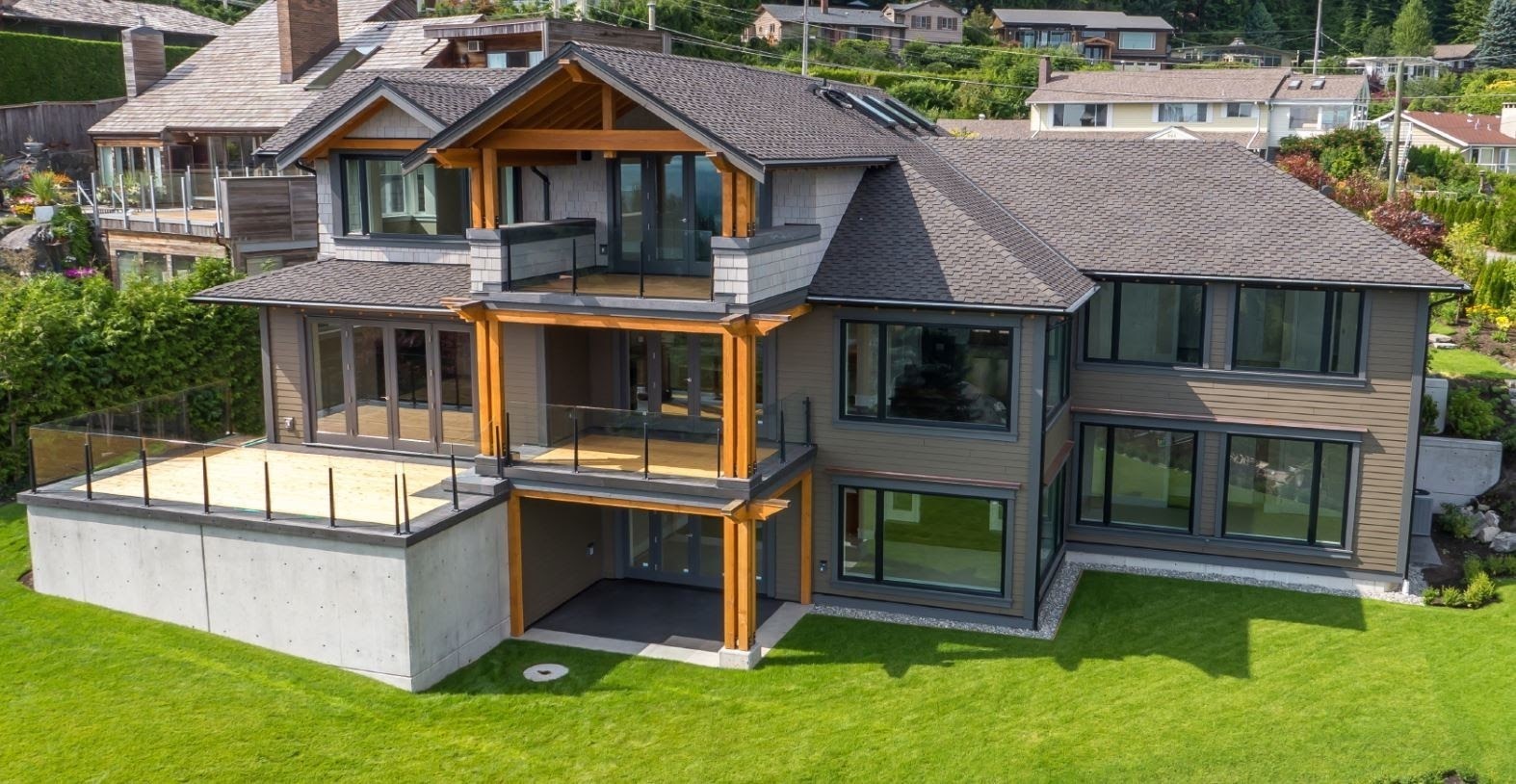
How Much Does an ICF House Cost to Build?

With energy prices soaring and a greater desire for more sustainable construction, it’s worthwhile to see what your options are. The majority of new home construction is still traditional wood-frame construction, however, better techniques are out there.
Maybe you’ve heard about insulated concrete form (ICF) houses and their benefits but you may be wondering, how much does an ICF house really cost? With all of the benefits, it’s easy to imagine that these great homes would come with a big price tag too. You might be surprised to learn just how affordable they really are, even with the benefits to energy savings, greater reliability, and low maintenance needs.

What is an ICF House?
ICF stands for insulated concrete form. An ICF block is an easy to install form that combines interior and exterior insulation in an easy to construct manner. In between these two layers of insulation, rebar is installed and concrete is poured in place. ICF construction is easier than wood-frame construction and prevents many common chances for human error. Because the forms, especially those from Fox Blocks, are modular blocks, they’re easy to assemble and projects move quickly with fewer errors.

ICF vs. Traditional Construction
At first glance, an ICF home may look identical to a conventionally built wood-frame home. Upon closer inspection, you’ll see where ICF really shines through. Here are some of the most prominent attributes of an ICF home:
Comfort
ICF homes are so well insulated or “tight”, that they maintain a much more comfortable temperature and level of humidity. With other methods of construction that lack the thermal mass and high insulation properties of ICF, exterior rooms might feel hot or cold depending on the weather outside. You might also have to constantly adjust the thermostat to keep your house comfortable. ICF construction helps moderate swings in temperature in order to keep the entire home at a more constant, comfortable temperature.
Quiet
The steel-reinforced concrete inside the ICF blocks adds a lot of mass to your home’s exterior walls. All of that concrete and foam helps to dampen any sounds from outside. In an ICF home, you’ll find a lot less noise making its way inside.
Durability
Some of the most impressive structures in the world are built from steel-reinforced concrete, and that’s no coincidence. Steel-reinforced concrete is incredibly strong and reliable. ICF homes are more resilient to natural disasters including hurricanes, wildfires, tornadoes, and any other extreme weather events. ICF homes are also naturally termite-resistant. Because of their resilience, many insurance providers give discounts for ICF homes.
Energy Efficiency
Arguably the biggest benefit of ICF construction is the energy efficiency that ICF construction provides to a home. With the thermal mass, airtightness, and high R-value of the ICF blocks, these homes cost significantly less to operate. On average, the monthly utility cost for a wood-frame house is $0.10 per square foot, whereas the average ICF home costs only $0.03 per square foot. How does a better constructed home and a high percentage reduction in energy bills sound to you?

How Much Does an ICF House Cost?
Building with ICFs creates a high-performance home and cost wise should not be compared to a minimum code built home with 2x4 wood-framing. In today's cost fluctuating building material marketing, an ICF home built by an experienced ICF contractor typically may cost about 3% to 5% more than a conventionally built wood framed home to meet the new energy codes. ICF homes actually use more and better materials when building the home. While the larger amount of higher grade materials adds to the cost, ICF blocks are so easy to work with that the labor savings are substantial and will help offset the material cost.
An ICF home may cost a bit more, but you’ll end up with a much stronger structure that costs substantially less to operate. ICF homes are so energy-efficient that the HVAC system has to run less often and can actually be downsized. This results in cheaper HVAC equipment and lower energy bills for the entirety of the home’s life. When you couple that with lower maintenance costs and often lower insurance premiums, ICF homes start to make a lot of economical sense.
Find an Experienced Contractor
One of the keys to keeping an ICF home cost reasonable is to partner with a professional that knows how to build with ICF. If the contractor you use has never worked with ICF before, Fox Blocks offers free primary installer training classes and a wealth of technical documentation and videos. A contractor that has already built four or five homes with ICF will have the knowledge and crew capable of getting your home built swiftly and economically.

Keep Costs Low and Innovation High with Fox Blocks
Fox Blocks is here to make sure you can make your ICF home a reality. Their easy to use Estimator Pro lets you quickly estimate what a project might cost. Enter any project specifications and determine an accurate material and labor estimate for any size project. Let the team at Fox Blocks guide you through the process of building your ICF home today.